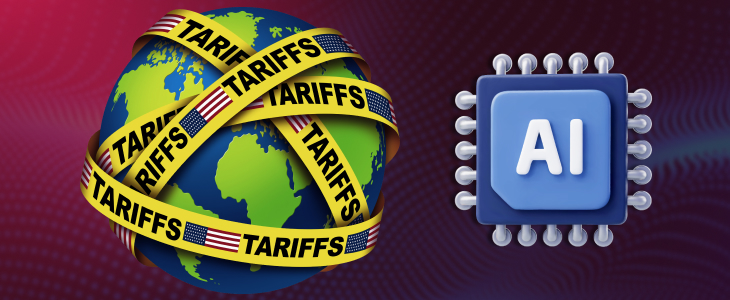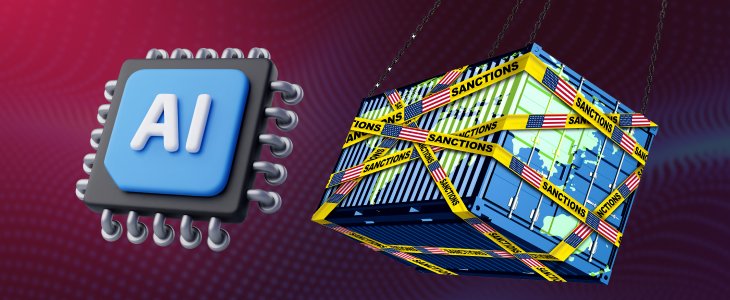Artificial intelligence is rapidly altering global market expectations and responses to policy changes. One of the most discussed topics is whether AI can predict tariff announcements before reputable sources, such as Reuters, publish the information. These choices can significantly impact the forex market, disrupt CFD trading plans, and alter global trade flows within hours.
For traders who use platforms like MT4는 or trade online, receiving signals before official notifications can present a significant advantage.AI-based prediction services analyze patterns in government filings, diplomatic activity, media coverage, and market signals to identify potential shifts.
However, the question is, are they capable of consistently outperforming more traditional reporting methods? Let’s find out!
Why Tariff Announcements Are Important in Foreign Markets
Tariffs are not merely government policy decisions; they reshape economies. A new tariff directly impacts supply chains, export-import relationships, and international trade relationships. The blowback almost immediately extended to the forex market, with the value of the currencies adjusting to the trade tensions.
In CFD trading and online trading, the traders base their forecasts on precise predictions to modify their strategies. This is where websites like FXcess, with advanced tools on MetaTrader 4, enable investors to respond promptly to changes in policies.
The Role of Reuters and Traditional News Outlets
Conventional sources, such as Reuters, are essential for providing information on tariff changes. Nevertheless, they report at a slower rate compared to real-time AI analysis. The main activities of the traditional media are as follows:
- Breaking News: Reuters provides verified government announcements to all parts of the world; therefore, the information is both official and timely to all markets around the globe. They play a vital role in ensuring openness between the governments and the people.
- Credibility Factor: These sources are credible since they have strict fact-checking and journalism rules, which qualify them as credible sources. This is the reason why traders continue to go to them, despite the advancement of AI.
- Market Influence: Traders respond immediately to the Reuters headlines, which tend to create sudden motion in the forex 귀금 equity markets. Billions of dollars in market worth can change hands in minutes, even with a one-line headline.
- Human Analysis: Traditional reporting, in contrast to AI, involves human commentary that provides helpful context and richness to raw data. Such human interpretation helps traders look beyond the numbers and patterns.
- Time Lag: Information isn’t released until it’s officially confirmed; therefore, you risk missing opportunities before they become public. The lag has created a window of opportunity for AI to succeed.

Can AI Predict Tariff Announcements?
AI integrates vast pools of data and predictive models to establish tariff changes before their occurrence. Through advanced analytics, AI predicts tariff announcements by identifying early patterns in trade activity, policy movements, and global sentiment:
- Machine Learning: AI is educated through the observation of past trends in trade and tariff movements and, therefore, finds correlations that predict near-term policy responses. Predictive modeling is enhanced with the volume of data in the system.
- Sentiment Monitoring: Computer programs scan all media and social buzz worldwide, then sense the first hint of policy adjustment before it goes viral. This enables traders to sense momentum before it becomes official.
- Preemptive Analysis: In combination, these applications provide advanced notice that can become public hours or even days in advance of formal announcements. Such preemption offers a head start in indecisive markets.
Benefits of AI Compared to Human Reporting
AI is bringing unparalleled speed and magnitude to tariff predictions. The perks are:
- Live Analysis: In contrast to human sources, AI analyzes live millions of points to pick up live market and policy hints. This enables traders to make a decision in time.
- Early Detection: It detects subtle hints and market signals, often identifying trends before the mainstream media notices them. They are indicators that can be crucial when positioning in the forex market.
- Advantage Trading: It is a key strength in forex and CFD trading that allows traders to hedge against sudden risks. Announcement of trades may cause loss of portfolio, but a quick response can recover the loss.
- Application with Tools: AI expertise can be integrated with tools such as MetaTrader 4, and it is simpler and quicker to achieve. Integration allows traders on platforms such as FXcess to respond faster.
Challenges of AI Forecasting
AI forecasting is not a flawless technology, despite its positive aspects. The biggest challenges are:
- False Forecasts: Sometimes AI can overemphasize weak signals, and as a result, it can give inaccurate signals to misguide traders. This is capable of leading to overreactions in sensitive markets such as forex.
- Opaque Decisions: A lot of tariff negotiations occur in the background, and they have no digital records, and AI is ignorant of such changes. These negotiations provide ambiguity in forecasting models.
- Regulatory Oversight: Regulators are increasingly looking at the way AI-based trading systems affect transparency and equity. Adherence will be central to traders making use of AI predictions.

Conclusion
AI has enormous potential for tariff announcements before Reuters, if not definitive. Though it can provide the predictive edge to foreign exchange market and CFD traders, it would have to be used in combination with authenticated news and solid trading strategies.
Platforms such as FXcess, based on the MetaTrader 4, enable investors to integrate AI data with trusted trading packages to make more intelligent decisions. After all, AI does not mean replacing Reuters; it is more about providing traders with a competitive edge when it comes to the uncertainties of trading across the globe.
FAQs
1. Is AI able to anticipate tariff announcements better than Reuters?
AI can identify early signals, but it cannot be as certain as official announcements.
2. What is the importance of tariff announcements to traders?
They impact global trade, currency value, and market sentiment, particularly in the foreign exchange market.
3. Can economic forecasting be based solely on AI by traders?
No, the AI is to be used only as a secondary source for augmenting the verified sources, like Reuters and expert opinion.
Disclaimer:
This information is not considered as investment advice or an investment recommendation, but instead a marketing communication. FXCess is not responsible for any data or information provided by third parties referenced, or hyperlinked, in this communication.
